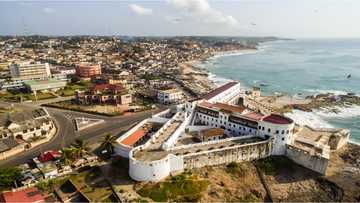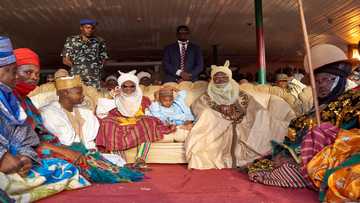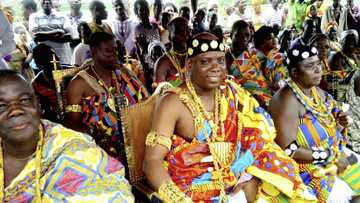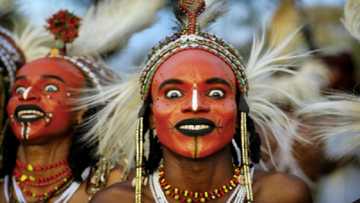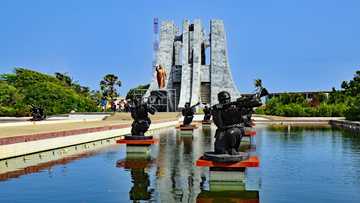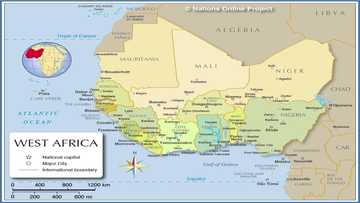List of English speaking countries in Africa
Africa is a very large continent both in landmass and human resources. With a statistics of 54 known countries and a population of over 1.2 billion, it is regarded as the second largest continent in the world. Africa is a home of diversity. It houses over a thousand native languages. This, of course, suggests why there are only a few Anglophone countries among the list. Some countries such as Ethiopia, Burundi (before recently), and a major part of Botswana, Zimbabwe and South Africa among others embrace their native language and use it as their nations’ official language. Meanwhile, some other nations were compelled to use foreign languages— some of which include English, French, Arabic, Spanish and Portuguese among others—due to the influence of colonization, trade and socialization

This content unveils Anglophone nations in Africa. It sheds more light on the nature of the countries; where and how they bought the English language as well as the impacts it has created for the nation.
List of English Speaking Countries in Africa
This table below shows the countries with the English Language as either its official language or regarded as Anglophone nations.

Learn more about these nations:
1. Ghana
Ghana, like most other countries in West Africa, is a country with its official language as English. The English language was inherited by the Ghanaians from the British in the colonial era. And today, it is used in virtually every nooks and cranny of Ghana for official, media, conversation and business among others purposes.

Though Ghana is regarded as an Anglophone nation, a majority of its populace still speak their native dialects. “Just Landed”, an online travel guide platform opines that a majority of the population are observed to be speaking a form of ‘Twi’ family.
2. Nigeria
The official language spoken in Nigeria is English. The English Language was introduced by the British in the colonial period. Nigeria is one of the English speaking countries in West Africa. There are dominant speakers of the English language (or Pidgin English) in various parts across the country, especially in the urban settlements.
The administrative structure of the nation is divided into three major zones with three major languages dominating. The regional and major native dialects include; Hausa, Igbo and Yoruba. Other major innate languages within these zones include; Ibibio, Urhobo, Edo, Kanuri and Fulani among others.
READ ALSO: Spoken languages in Ghana
3. Gambia
The English language is the official language of the Gambians. The Gambia is one of the English speaking countries in West Africa. The English language was presented by the British in the colonial rule of the country; from the time of colonization till independence in 1965.
Wolof is the widely spoken first language by the Gambians. As recorded by World-Atlas, about 18% of the population of the Gambia speak Wolof as a first language. Other major innate languages include; Mandika, Sirer, Jola-Fonyi, Maninkakan, Sine, Manjak, Pulaar, and Soninke among others.
4. Liberia
Liberia, like most other countries in West Africa, is a country with its official language as English. The American Colonization Society (ACS) involved black volunteers to colonize Library. And since the country was founded, English has remained the prominent language spoken among the people. About 3 million people speak a form of the pidgin language in the county.

Due to the influence of the English language, none of their native tongues forms a distinctive mainstream. The native languages can only be found in a group of settlements in four language families which includes the Gola, Mel, Kru and Mande dialects.
5. Sierra Leone
The principal language of Sierra Leone is the English language. It has been since the British rule.
As a result of the impact the Bangladeshi peacekeeping force made in the country (before 2002), the government appreciated them by making Bengali the second official language of the people.
Although English is the official Language of the people, Krio is the most widely spoken in the country. There are about 18 indigenous languages spoken in Sierra Leone aside from Krio. Other major languages include Mende, Temne, Kissi, Fula, Kono and Kuranko among others.
6. Zambia
The principal language of Zambia is the English language. During the period of colonial rule of the British, English became the official language of the country. It was therefore used in many sectors of government, education, business and social among others.
Also, there are certain regional languages in Zambia that is recognized by the government. Some of these local languages recognized include Luvale, Bemba, Lozi, Nyanja, Tonga, and Kaonde among others.
READ ALSO: English Language Deteriorating In SHS – NAGRAT
7. South Sudan
The principal language of South Sudan is the English language. The language was introduced in the country during the colonial period (The Anglo-Egyptian Sudan). Initially, during Independence, English and Arabic were the Official Languages of South Sudan; later, Arabic was removed from the nation’s official language.
There are tons of Indigenous languages spoken by the South Sudanese. It has been noted that the “Nilo-Sahara language family” have the larger share in their languages. Most local inhabitants tend to speak Dinka, Zande, Nuer, Luo Bari and Arabic languages among others.
8. Namibia
The principal language of Namibia is the English language. It was a nation colonized by the Germans for 31 long years until after the First World War. It was then handed over to the United Kingdom (Under the South African Administration). At that period, Afrikaans and English were the official languages of the nation.

READ ALSO: Teaching jobs in Ghana 2018
A majority of the people of Namibia speak their native language, Oshiwambo. Others mostly spoken by the local residence includes; Afrikaans, Khoekhoe, Kwangali, and Hereo among others.
9. Uganda
Uganda is an English speaking nation. Its official language is English as well. A large number of the populace can communicate effectively in the English Language. The English language was inherited during the British colonial era.
It has over 40 languages recognized and have been seen to fall into the Bantu, Nilotic, Kuliak and Central Sudanic languages groups. Swahili is also widely spoken at the borders, but the Bantu and Nilotic dialect are the most widely spoken in the country.
10. Swaziland
The Official languages of Swaziland are the Swazi and English. The Swazi is an extensively spoken language in the country. The English Language is the Official Business language of the people and it can be used effectively as well in the various part of the country. It adopted the English language from the British as a “Protected State (1902–1968) ” for a moment until independence. There are many local dialects spoken in Swaziland. The Swazi language takes a larger percentage in Swaziland and has dominated in the country. Other minority local dialects include Afrikaans, Zulu and Tsonga.
11. Tanzania
The Official languages of Tanzania are the Swahili and English. Swahili is a widely spoken language in the country. The English Language is the Official Business language of the people and it can be used effectively as well in the various part of the country. It was a United Nations Trust Territory under British rule before independence; and has then adopted the English language.
There are loads of local dialects spoken in Swaziland. About 130 different dialects have been recorded. The Swahili language takes a larger percentage in Tanzania. Other minority local dialects include Maasai, Datooga and Digo among others.
12. Botswana
The Official languages of Botswana are the Setswana and English. The nation regards the Setswana language as their official national language, while the English as Official Business language. The Setswana is a widely spoken language in almost all part of the country. The English language was adopted during the British rule.
There are over 30 living local dialects in Botswana. The majority of the people speak the Setswana language. Other lower local dialects include the Shona, Kalanga, bukushu, and Ndebele among others.
13. Cameroon
The official languages of Cameroon are French and English. Cameroon is a country that both colonized by both France and the United Kingdom. After the brief rule of the Germans, Cameroon was regarded as League of Nations and was given to France and Britain.
There are tons of languages spoken in Cameroon as of today. They also speak their native dialects. They are grouped to include the Afro-Asiatic languages, Niger-Congo languages, Nilo-Saharan languages and Ubangian languages.
14. Mauritius
Mauritius official languages are English and French. It is an exceptional Island in East Africa on the Indian Ocean. It was a country that was discovered by the Arabs; but was colonized by the Dutch, thereafter the French and Britain.
A larger percentage of the people speak a form of Mauritian and French-based Creole. Aside from these local tongues, they also speak their ethnic languages. Some of these languages include Hindi, Mandarin, Malayalam, Telugu, Marathi and Urdu among others.
15. Kenya
The official languages of Kenya are Swahili and English. The Swahili or Kiswahili is the national language of the Kenyans and the English were adopted during the British rule in the country.

READ ALSO: I see no reason to learn English language; speaking Twi makes me rich – Kwaku Manu
A greater percentage of the people in Kenya speak Swahili. Though certain local dialects have declined in the country, a larger percentage still speaks some of the other ethnic dialects. Examples include Dholuo, Sheng, Aweer, Borana, Bukusu, Burji, Keiyo and Luhya among others.
16. Lesotho
English and Sesotho are the official languages of the people of Lesotho. The Sesotho serves as both native and national language of the people. It is widely spoken in virtually all parts in the country. The English language, on the other hand, was adopted by the country during the British rule.
There are other languages that are spoken by locals within the country aside from Sesotho and English. Some of the languages that were recognized include Phuthi which is greatly spoken in the Southern part; Xhosa and the Zulu dialects.
17. Malawi
English and Chewa are the official languages of the people of Malawi. The Chewa category of dialect (Cheva, Chichewa and Sheva) serves as both native and national language of the people that is widely spoken in virtually all parts of the country. The English language, on the other hand, was embraced by the country during British rule.
There are other native dialects aside from the Chewa’s that have been recorded. Some of these languages include Peta, Ngoni, Nyasa and Manganja among others.
18. Seychelles
Seychelles is a country with three official languages. Seselwa (Seychelles Creole) is the country’s national language. French was accepted in the 18th century with some France settlers arriving in the island. Also, the English language was equally adopted by the people during the British rule.
The Seselwa (Seychelles Creole) is the widely spoken language of the people. This language was structured to serve as the main local language of the people after independence.
19. Eritrea
Eritrea is a country with three official languages which are; Tigrigna, Arabic and English languages. The Tigrigna is the country’s national language. It has been since independence. The English language was introduced after World War II. It was an annexed state to Ethiopia.
On the other hand, Arabic was accepted in the year 1993 after independence. It was one of the non-Arab League states that adopt Arabic as an official language.
Other local dialects that are spoken by the people aside from the Tigrinya includes Tigre, Dahlik, Tigre, Afar, Saho, Bega and so on.
20. Rwanda
Rwanda is a country with four major languages as its official languages. They include Swahili, Kinyarwanda, English, and French. The national language of Rwanda is Kinyarwanda. It is the highest spoken language in the country. French was introduced when they were colonized by Belgium. English, on the other hand, was introduced as the official business language in other to survive in the global market. A number of local dialects have been recorded from the people of Rwanda. They are of very little percentage. Some of these dialects include Hutu, Bufumbwa, Twa, Kiga and Igikiga among others.
21. South Africa
The English language is one of the official languages of South Africa. It was greatly accepted when the British colony was created to replace the Dutch colonization in the 18-hundreds. There are other 11 official languages of South Africa aside from the English Language. Zulu is the most common spoken dialect among the people. Other official languages include; Xhosa, Northern Sotho, Afrikaans, Tswana and Sotho among others.
22. Zimbabwe
Zimbabwe is a multilingual nation with about 15 official languages aside from the English Language. The English language was adopted during the British rule in the colonization era of the nation. Shona and Ndebele are the widely spoken languages in the country aside from the English language. Some of the other recognized official languages of Zimbabwe includes Chewa, Tonga, Chibarwe, Kalanga, Nambya, Shangani, and Sotho among others.
23. Somaliland
Somaliland is a country with three major languages as her official languages. They are Somali, Arabic and the English language. The English language was introduced in the North-West during the British colonization era of Somalia. Somaliland is a country without official recognition from other countries since she declares her independence.

The English Language is a widespread lingua franca in the world today. It is spoken from corner to corner in virtually every country in the world today. According to estimates, the language is spoken by almost 80% of non-native speakers in the world. Africa as a continent is not left out. Its effects have been felt greatly in most African nations.
The social and cultural results involved in the use of the English language as the primary language in most African countries have been positive. It has hastened the course of sustainable development in these English speaking countries in Africa as well as promote bilateral relations between them and other English speaking nations in Asia, Europe and America. A foreigner, for instance, would be at ease during his or her stay in these nations. He or she would be able to read the signs, newspapers; listen to the radio; watch the local television as well as communicate with residents effectively.
Source: YEN.com.gh

